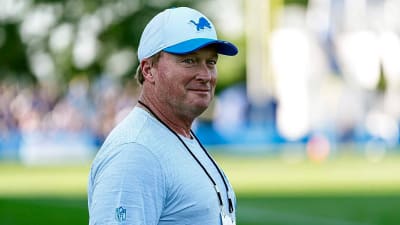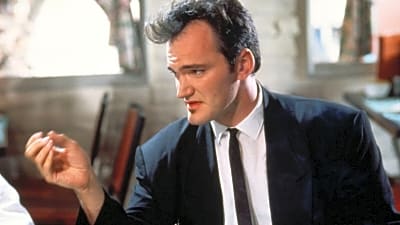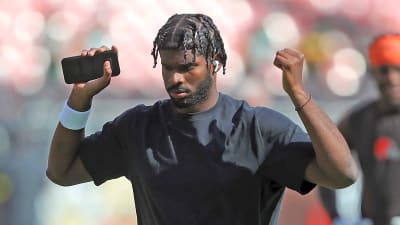CHICAGO –– The White Sox broke ground in August on a new baseball academy in Boca Chica, Dominican Republic. Backed by a $12 million investment, it's projected to open in the fall of 2026.
That development is just one example of the White Sox making an effort to improve all aspects of their international scouting department.
David Keller –– White Sox special assistant to the executive vice president and general manager of international scouting –– was at Rate Field on Sept. 16 to discuss the progress the organization has made in just over a year since his hiring.
"In that time, we've turned over our entire international staff. We've implemented a brand-new system and process that we believe, over time, if repeated consistently and well, is going to yield positive results for the White Sox," Keller said. "... We've assembled a really good team, a great team of people that are aggressively beating bushes every day and trying to identify talented players for us to scout and, when they are eligible to sign, hopefully make them White Sox."
A symbol of opportunity and commitment for the future.
— Chicago White Sox (@whitesox) August 14, 2025
Our new Dominican Republic Academy in Boca Chica is projected to open in Fall 2026. pic.twitter.com/PN0oh5GTIa
When Keller took the job, it was evident that things needed to be revamped. Along with hiring a new staff, the White Sox subscribe to new data services that help make decisions on players. Keller has also worked to build relationships and trust in countries like the Dominican Republic, a crucial factor in ultimately turning prospects into White Sox players.
While he encountered some positive relationships between the White Sox and trainers or agents, Keller felt the White Sox weren't a steady enough presence in certain academies, especially in the Dominican Republic. So working alongside White Sox staff members Louis Silverio, A.J. Puig and others, Keller has strived to fix that.
"There were a lot of relationships with trainers and agents in Latin America that were broken, and we had to go about mending fences and building positives relationships," Keller said. "And making sure that when they thought about talented players and where they wanted to show them and sign them that we were a team that they considered."
White Sox general manager Chris Getz has been impressed by Keller's work so far.
"He’s gone beyond what I’ve tasked him to do," Getz said. "He’s really built out a comprehensive process for evaluating players. He brought in some people to really support our international process and they’ve done a really nice job. I’ve spent some time down there with that group and I see how they interact with scouts and trainers and building those relationships, which is vital for getting some of these players."
"There’s always a lag to any type of acquisition, whether it be the amateur draft, but certainly on the international side, just based on the age in which we’re signing players. I think the future is very bright based on what he’s been able to accomplish so far."
The White Sox first international signing class with Keller featured two Dominican Summer League All-Stars: Dominican outfielder Frank Mieses and Cuban pitcher Yobal Rodriguez both of whom signed for under $250,000.
Dominican OF Frank Mieses officially signed with the Chicago White Sox.
— Francys Romero (@francysromeroFR) January 15, 2025
Bonus deal: $200,000. pic.twitter.com/vpifsAH45c
Mieses posted an .825 OPS in 44 Dominican Summer League games, while Rodriguez recorded a 2.97 ERA and a 1.02 WHIP in 30.1 innings. They still have a long way to go as 17-year-olds, but this season was a positive step for them and the White Sox international scouting department.
"In Frank, you've got a physical, athletic centerfielder, who we think has a tremendous future," Keller said. "Yobal Rodríguez is a right-handed pitcher who stands out because of his advanced pitchability, above-average strike-throwing ability and then a plus changeup on top of it."
They're not the only ones from last year's signing class that have caught Keller's attention.
"We signed a 19-year-old Cuban centerfielder, Osniel Castillo, late in the season and in limited playing time, what he exhibited was plus speed, the ability to impact the ball, played tremendous defense and really impacted all three phases of the game," Keller said. "... Diego Perez, a young right-handed pitcher who can really spin a curveball, also throws a lot of strikes and got off to a rough start but then finished pretty well is another player we're pretty excited about."
While plenty of Keller's focus is on Latin America, given the amount of talent those countries produce annually, there has been a growing market on the other side of the world, too.
Thirty years ago, Hideo Nomo started the All-Star game as the second Japanese-born player in MLB history. But fast forward, and the league featured 14 Japanese-born players in 2025, including All-Stars Shohei Ohtani, Yoshinobu Yamamoto and Yusei Kikuchi.
Keller was recently in Japan for 10 days, and said the White Sox hired a scout for the Nippon Professional Baseball (NPB) league in Japan, which produced Ohtani, Ichiro Suzuki and others.
International scouting in Latin America is typically a longer process with younger players, but signing players from Japan is more similar to MLB free agency from an age perspective. For example, Shota Imanaga and Seiya Suzki signed with the Chicago Cubs at 30 and 27 years old, respectively. Munetaka Murakami, a 25-year-old infielder with 263 home runs in eight NPB seasons, is expected to pursue a move to MLB in 2026, per Ayako Oikawa of MLB.com.
Munetaka Murakami hits an absolute missile for his 21st homer
— Yakyu Cosmopolitan (@yakyucosmo) September 30, 2025
pic.twitter.com/xeAxFEnijp
The White Sox are still in the early stages of Japanese scouting, but they feel it could make an impact at some point.
"Watching those players, we do know or feel like there will be players that come over from Japan," Keller said. "Part of what I talked about initially was process. We’re still in the beginning stages of setting up an infrastructure that allows us to feel good about a process in acquiring those players. I don’t believe that stops us from pursuing them. To the extent we pursue them, that will come back to Chris [Getz] and Josh [Barfield] and everybody else in the front office."
Getz took over as general manager in August of 2023 after Rick Hahn's firing, and rebuilding the White Sox has been a long and ongoing process. That touches all aspects of the organization, including the international scouting side.
"It’s dramatically different, it is. It’s allowed us to, I feel, make better decisions," Getz said. "And in the end, as these players mature and grow and work towards the major leagues and get to the major leagues, we’ll feel it. Unfortunately you have to wait, but presently I feel we’re going about it the right way."
More must-reads:
- Yankees ride rookie Cam Schlittler's historic performance to ALDS with Red Sox elimination
- Dodgers announce Game 1 starter vs. Phillies
- The 'Active 30-homer MLB seasons leaders' quiz
Breaking News
Trending News
Customize Your Newsletter
 +
+
Get the latest news and rumors, customized to your favorite sports and teams. Emailed daily. Always free!








